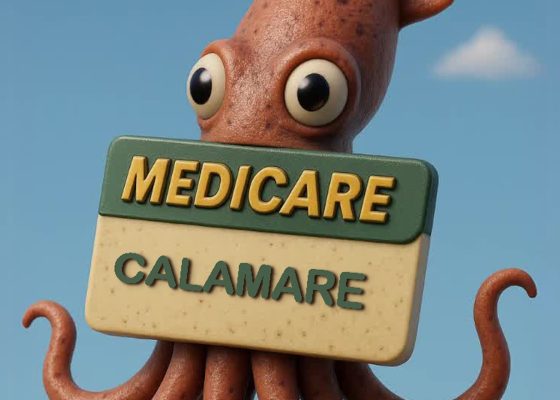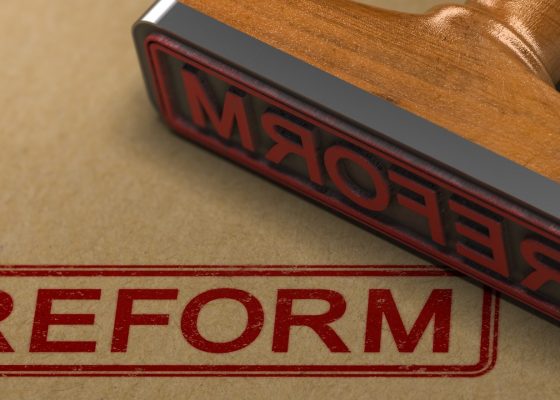We made it to election day. Let’s hope voters understand the importance of “non-frontline” workers in the healthcare system.
I’m not silly enough to publicly predict the outcome of today’s federal election, but the polls say it will be Labor, with the question of whether they will win majority government the only doubt.
If indeed the Coalition does lose, I have no doubt one of the reasons will be its apparent inability to understand two things: what the Department of Health and Aged Care does, and the importance of what I’ll call “non-frontline” workers to the efficient functioning of frontline workers.
For the last month and a bit the Coalition has been blatting on about making 41,000 cuts to the public service, in the name of “efficiency”.
They have backslid a little bit each week.
First it was 41,000 cuts immediately, then it was 41,000 cuts via “natural attrition and voluntary redundancies”. Then it was that, over five years. Then it was only Canberra-based public servants. Then it was that, but not the security or intelligence agencies.
Yesterday, there was a suggestion that moving public servants out of Canberra into the regions would be a way to make the Coalition’s attrition targets.
See the latest Election 2025 news all on one page, here
The only consistency has been the Coalition’s response to questions about that. See if this sounds familiar:
“There will be no cuts to frontline services. We’ve been very clear about that.”
As Melissa Coade, writing in The Mandarin yesterday, quite rightly pointed out, the debate about public service cuts has been superficial and, in the case of shadow health spokesperson Senator Anne Ruston, quite possibly uninformed.
“… either Ruston has not been briefed on the independent DHAC capability review undertaken in 2023, [or] that the Coalition’s policy to significantly revise down APS numbers by attrition has not contemplated research about health department and system needs, or a decision was made that ‘fessing up to the public about the truthful state of the portfolio was not politically expedient,” wrote Ms Coade.
The fact is the DoHAC’s job is not frontline care. It is about supporting frontline care. As the capability review said, the role of the department is complex and includes regulation, funding and financing, program management and administration, direct citizen engagement, and policy advice to government.
“Building and maintaining integrated policy development across these areas will be critical for the department to sustain an advanced and improving health care system,” it said.
As Ms Coade wrote:
“All this to say, the sustained focus and investment needs of the department’s non-frontline efforts are significant.”
Federal health minister Mark Butler told The Mandarin:
“I want to see a vibrant Department of Health staffed by people whom I know, when I visit them, have a deep commitment to defending one of the best healthcare systems in the world and making sure that it’s there for coming years and decades as well.
“That’s why I’m so opposed to this cavalier approach to cutting 41,000 people from the public service and thinking somehow that it’s not going to have an impact.
Related
“We do need to have a reforming agenda at a Commonwealth level, frankly, no matter who is in government.
“The department is shifting from its emergency management focus … and as we terminated the emergency phase of the [covid] pandemic, we had to move into what we had as a very ambitious policy agenda.
“The Strengthening Medicare agenda, aged care reform — [Labor wants] to see over the coming years work done around health technology assessment and many other areas.”
Now imagine doing that reform, and supporting high-quality frontline care of patients, with fewer staff.
Right now the Coalition hasn’t even been able to say whether the DoHAC will be one of the targets for its 41,000 APS cuts, and all this is moot unless P Dutton walks away from today as Prime Minister.
But cutting DoHAC staff now? When the healthcare system – not to mention an aged care system that is undergoing massive reform – is already groaning under the strain?
Madness.
Let’s see what happens over the next few days. But for the sake of not just of those DoHAC bureaucrats keeping the doctors and nurses and all the rest paid and supported and connected, but also for the patients on the sharp end of the system, I personally hope the Coalition does not come out on top.
Don’t get me wrong. Labor is as likely as any political party ever to change its mind and slash APS jobs in the future, but at least for now it seems to have its eye on a more positive approach to making the system better.
Godspeed everyone. We’re in for a bumpy ride.




